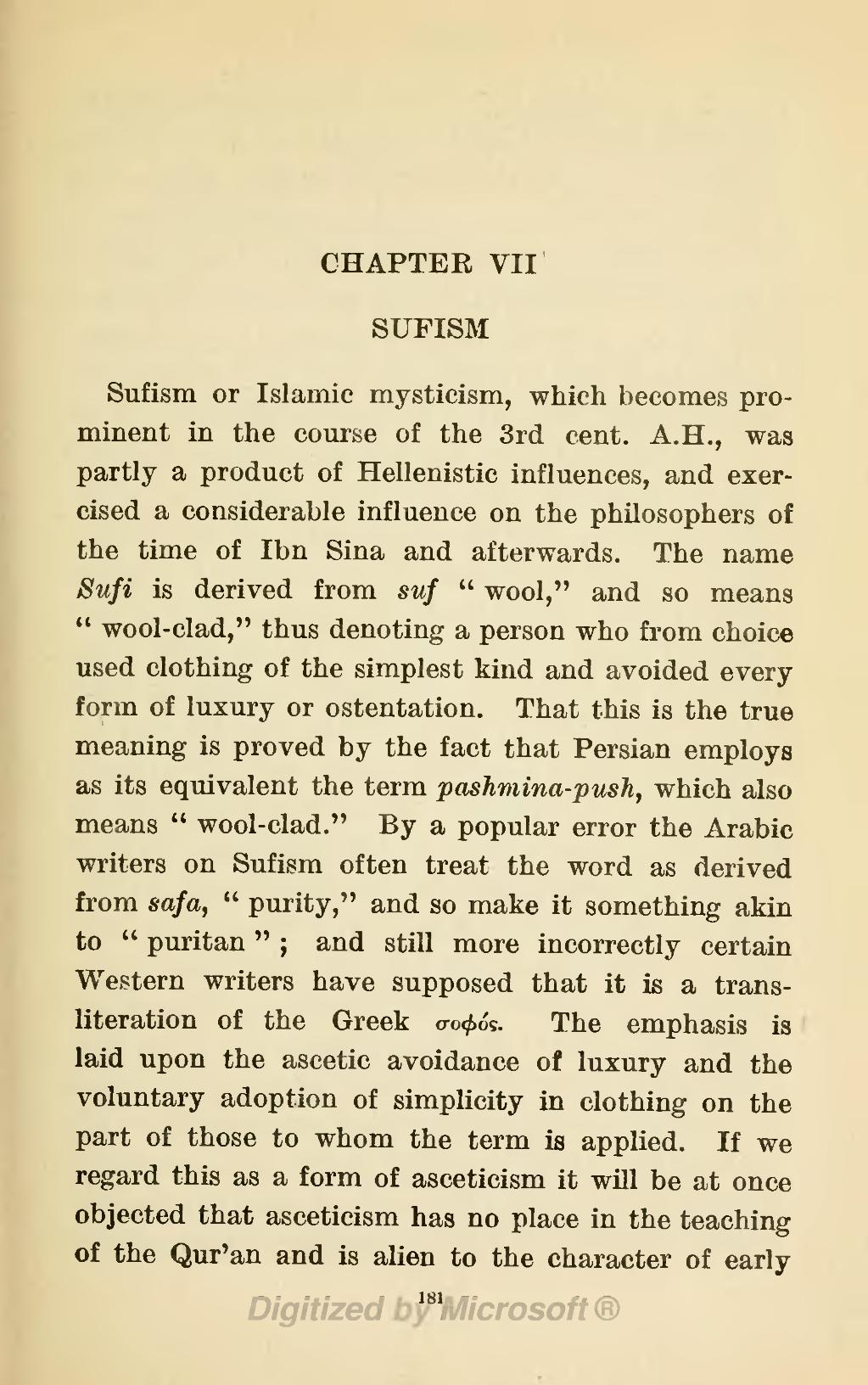CHAPTER VII
SUFISM
Sufism or Islamic mysticism, which becomes prominent in the course of the 3rd cent. A.H., was partly a product of Hellenistic influences, and exercised a considerable influence on the philosophers of the time of Ibn Sina and afterwards. The name Sufi is derived from suf "wool," and so means "wool-clad," thus denoting a person who from choice used clothing of the simplest kind and avoided every form of luxury or ostentation. That this is the true meaning is proved by the fact that Persian employs as its equivalent the term pashmina-push, which also means "wool-clad." By a popular error the Arabic writers on Sufism often treat the word as derived from safa, "purity," and so make it something akin to "puritan"; and still more incorrectly certain Western writers have supposed that it is a transliteration of the Greek σοφός. The emphasis is laid upon the ascetic avoidance of luxury and the voluntary adoption of simplicity in clothing on the part of those to whom the term is applied. If we regard this as a form of asceticism it will be at once objected that asceticism has no place in the teaching of the Qur'an and is alien to the character of early
181
